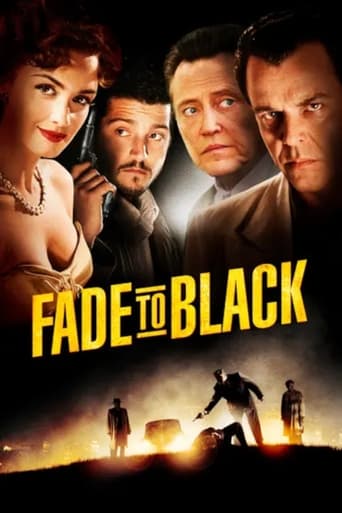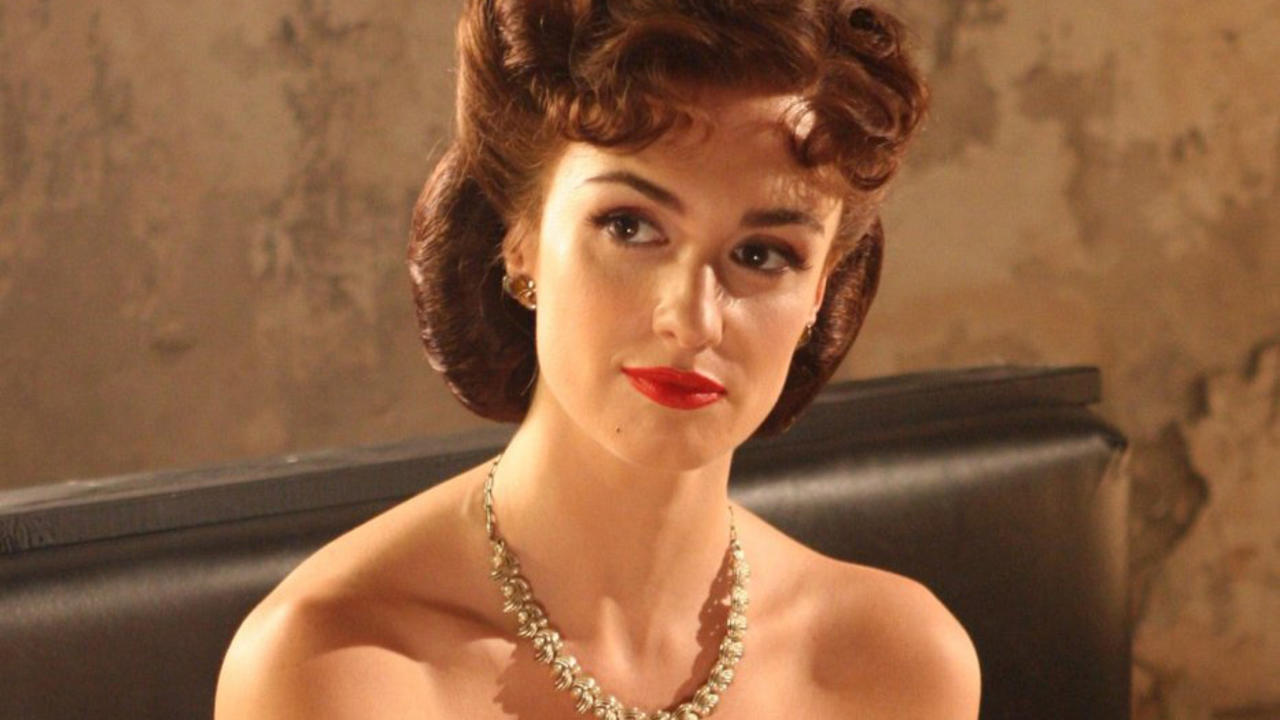mike dewey
Our subject film gets underway by showing Mr. Welles in a very inauspicious light, as evidenced by his tepid, if not sarcastic, reception at the Rome airport as he arrived at the terminal almost unnoticed and visibly upstaged by Ty Power's arrival. But what's our guy to do given his current set of circumstances brought upon him by Ms. Hayworth giving him the old heave-ho and thereby ending their marriage? So now he's in post WWII Rome where he shall try to undergo some face saving (he hopes) by attempting to reinvigorate his career by directing his slightly convoluted version of Othello that starts to look like a comedy of errors at the immediate onset of this dubious production.But camp turns to tragedy as one of the actors gets murdered not long into the production. The dying thespian whispers something into Mr. Welles' ear just before passing on, and now a whole new chain of events starts to take place. One mystery begets other mysteries in a sort of arithmetic progression and the serious side of this drama/mystery starts to unfold. And this part of the film shows an understated, realistic Orson Welles who stumbles about looking for murder clues amidst a truly chaotic time in Italy. No star fanfare or ballyhoo here as he undertakes this complex task.After all, it is post WWII Italy and the country is in total upheaval as large segments of the populace live in dire poverty. Added to this is a loose but dangerous amalgamation of ex-Nazis, dope dealers, neo-Fascists, US & other Allied forces' mercenaries acting under the guise of the political umbrella called the Christian Democrats who purportedly want to democratize Italy and make it a safe haven for democracy, out of Stalin's Communist Party's reach. Welles stumbles into these characters as he proceeds with trying to find more facts surrounding the murder on his set and ends up in a bailiwick of troubling surprises in so doing. What he sees, hears and learns from one of his old friend American colleagues (Chris Walken's role) and others in the aforementioned umbrella group is what drives the latter part of the film and pieces together the political ramifications of what transpires here. Was this a true account of what actually happened in post WWII Italy's chaotic time of turmoil? As was said toward the film's conclusion: "You want facts, read a History book!" At least there you will find out one person's view of the facts...Welcome to the real world!!
jotix100
Orson Welles was invited in 1947 to participate in the film "Black Magic", directed by Gregory Ratoff. At the time, Mr. Welles was getting over the painful experience he suffered after the divorce from Rita Hayworth. His arrival to Italy went mostly unnoticed, as we witness his arrival at Rome's airport; his presence there is upstaged by that of Tyrone Power. One of the reporters insists in calling him Mr. Hayworth, something that must have hurt the wound in his heart.When the shooting begins in the fabled Cinecitta, everything is chaos, as director Ratoff tries to rein all what is going on in the set. To make matters worse, the leading lady, the gorgeous Lea Padovani, doesn't seem to warm up to her more famous co-star. When one of the players in the film dies right in front of Mr. Welles, he discovers a list with names of prominent Christian democrats. Curiosity gets the best of him, as he wants to follow the motives behind the deaths.It was a difficult time for Italy. Having been defeated, the country was in turmoil with thousands of refugees living in squalor. The communist party had a strong following, something that Orson Wells notices right away. His the help of his young driver, Tommaso, he goes into an unknown territory and gets sucked in the mystery behind the politics of the time.As directed by Oliver Parker, the film is a curiosity piece about what went on in Italy at the time, from the real Orson Welles perspective. Danny Huston, who portrays the American genius, has an uncanny resemblance and is about the best thing in the picture. Diego Luna, is seen as Tommaso, and lovely Paz Vega, has some good moments as Lea Padovani, the leading lady.
writers_reign
This is one of those 'what if' conceits that sometimes come off spectacularly and more often than not bomb. This time around we are asked to surmise 'what if' Orson Welles couldn't get arrested in Hollywood in the late forties and in the wake of his separation and impending divorce from Rita Hayworth found himself playing the lead in a cheesy costume picture in Italy and on the side got involved in both murder and local politics. Like all 'what if's there's a modicum of truth here; Welles did exile himself in Europe in 1948 where he did appear in some fairly dire movies and, of course, he was divorced from Rita Hayworth around that time. The film has him lining up an investor for his version of Othello to be shot in Italy when the current film is in the can whereas although he did write, direct and star in Othello it was actually made in Morocco in 1952. Danny Huston really needs to do more than wield a cigar to come over as Welles and perhaps wisely he makes no attempt to reproduce that distinctive timbre though he might have had a stab at that impish twinkle in the eye that was so much a part of Welles. Pick of the rest is Anna Galieni, so great in The Hairdresser's Husband for Patrice Leconte. As a curio this is worth a look but that's about it.
audresonmichael
I enjoyed this movie immensely. It captures the sense of Orson Welles as an adventurer, trying to raise money for movies which he understands better than those around him and instead making ones for other people which he knows are rubbish. On his travels in 1948 Italy, he stumbles into a murder mystery connected, perhaps too loosely, with a political conspiracy.It's cleverly made and very funny. I loved the playfulness which nodded at Welles's work without doing anything as crass as obvious references. It's an enjoyable story. Not a great thriller, the insights and revelations weren't surprising but that only made it more real and engrossing.Huston was encouraged to do part Orson and part his Father, John. He's a likable, believable hero matched by a good, mainly Serbian cast. Paz Vega is excellent as the heroine and Diego Luna gives a wonderful turn as the second hero to Welles, reminds me of James Macavoy, only likable.


 AD
AD



